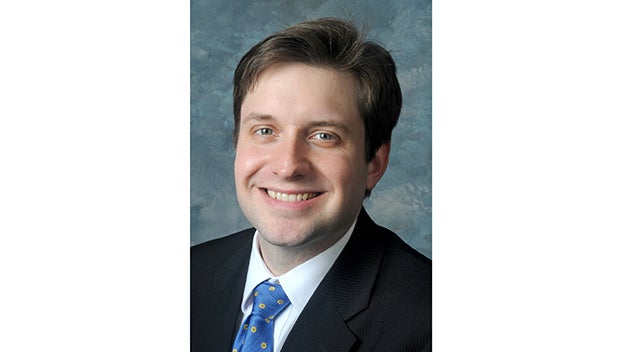Danville school attorney denies open meetings violations occurred
Published 8:57 am Friday, March 2, 2018
Danville Board of Education Attorney Vince Pennington has responded to a complaint letter signed by more than 100 community members concerning the school board’s decision not to renew Superintendent Keith Look’s contract.
Pennington’s response is formulated as a denial of a formal open meetings complaint. Pennington denies that a violation of the Open Meetings Act occurred on Feb. 19, the night the board voted to declare a vacancy in the superintendent position as of July 1.
One complaint in the community members’ letter was that the Feb. 19 meeting was held in a space too small for the number of people attending. Pennington acknowledges “it is true that the meeting was especially crowded during items one-three of the agenda,” adding that student recognitions were taking place at that time.
Pennington alleges that the hallway was mostly empty by the time the meeting got to the last two items — public comment and “Discussion of Superintendent Contract.”
“There were only a handful of individuals in the hallway and they were there by choice — not because they were unable to enter the meeting room,” Pennington wrote. “There was not a single complaint to the board during the meeting that a person who wanted to participate in the meeting could not participate because he or she could not enter, or remain in, the meeting room. There was not a single complaint to the board that a person was unable to hear the discussion. Each board member, and each person who addressed the board, spoke into microphones that were more than adequately amplified.”
Pennington’s response states he had contacted individuals who remained in the hallway and said they did so because they wanted to, not because of lack of space.
In the letter, Pennington also responded to allegations that Board Chair Paige Matthews manipulated the public comments section of the meeting by stacking the speakers in favor of keeping Look at the beginning and letting speakers who wanted change speak at the end; and that she violated the Open Meetings Act by sending and receiving text messages during a public meeting.
Kay Anderson was first on the list to speak, but she had texted Matthews, “indicating that Ms. Anderson had changed her mind and did not want to address the board; as a result, Ms. Matthews started the public comment section of the agenda by calling Amanda Addison, who was listed second on the sign-in sheet,” Pennington wrote.
The letter states that Anderson texted Matthews later stating she did want to speak and was added back in as the eighth speaker.
“Aside from that minor change — one that is certainly within the description of the presiding officer of a meeting of a public agency — Ms. Matthews called the speakers precisely in the order in which they had signed up. Plain and simple, there was no effort whatsoever to manipulate the order of speakers to justify a certain outcome,” Pennington’s response reads.
Matthews was using her phone, but, the letter states, only to receive messages from people wishing to speak who had not “located the sign-in sheet,” and to respond to her daughter, who was at home sick.
The initial complaint alleged the Open Meetings Act was violated in allowing two individuals to “present improper comment.” The two, Pennington said, spoke about the treatment of their children or stepchildren and since the meeting was a regular meeting, “the scope of the public comment section was not limited to the issue of whether Dr. Look’s contract should be renewed.”
“Citizens were free to address the school board regarding any concerns they might have,” the response states.
Pennington also responded to the allegation that the board intended to mislead the public by listing “discussion of superintendent contract” on the agenda.
“As a purely legal matter, a public agency is not required to have an agenda for a regular meeting,” Pennington wrote, citing Kentucky open meetings law. He added that the board is allowed to deviate from the agenda in regular meetings.
Pennington also cited the fact that the meeting was well-attended as proof that no one was misinformed about the potential for a vote on Look’s employment.
The last allegation Pennington responded to was that of collusion between Matthews and board members Susan Matherly and Lori Finke.
Matthews, Matherly and Finke all attended the Feb. 19 meeting with prepared statements concerning Look’s contract not being renewed. That caused community members to ask how the three knew what the vote would be prior to the meeting.
Board members held an executive session in January to discuss Look and numerous community members spoke on Look’s behalf, believing the board might make a decision about Look’s employment. But after the meeting, Matthews said the situation was a “misunderstanding” because the agenda included an executive session discussion about Look’s upcoming evaluation.
“There hasn’t been, as of yet, but I feel like there will be discussions (about Look’s contract),” Matthews said after the January meeting.
Look and his contract were not discussed by the board during a public meeting again until the vote on Feb. 19.
Pennington’s response argues that some board members may simply feel more comfortable speaking from prepared notes.
“Of course, there is nothing improper, in and of itself, about an elected official speaking from notes or a prepared written statement; one can easily imagine why an elected official might stick to prepared remarks when speaking on a controversial or sensitive subject,” Pennington wrote.
Pennington said that board members approached the meeting the same as district employees and community members, who attended in anticipation of a vote. Many community members had prepared statements of their own, he wrote.
Pennington sent a copy of the letter via mail or email to most of the 108 who signed the initial letter to the board.
Pennington’s remarks
“My view is, there are different groups of people who are upset right now. All have very good intentions and are expressing concerns,” Pennington said. “I think the group and the board just need to find a way to move forward together.”
Pennington said he attempted to “capture” everything he felt that was relevant.
He plans to have a conversation with the board about the other complaints in the initial letter sent.
“We will see if we can find a way forward, where the different groups can, I hope, reach some common ground and have a less acrimonious discussion about the issues that need to be addressed,” Pennington said.






